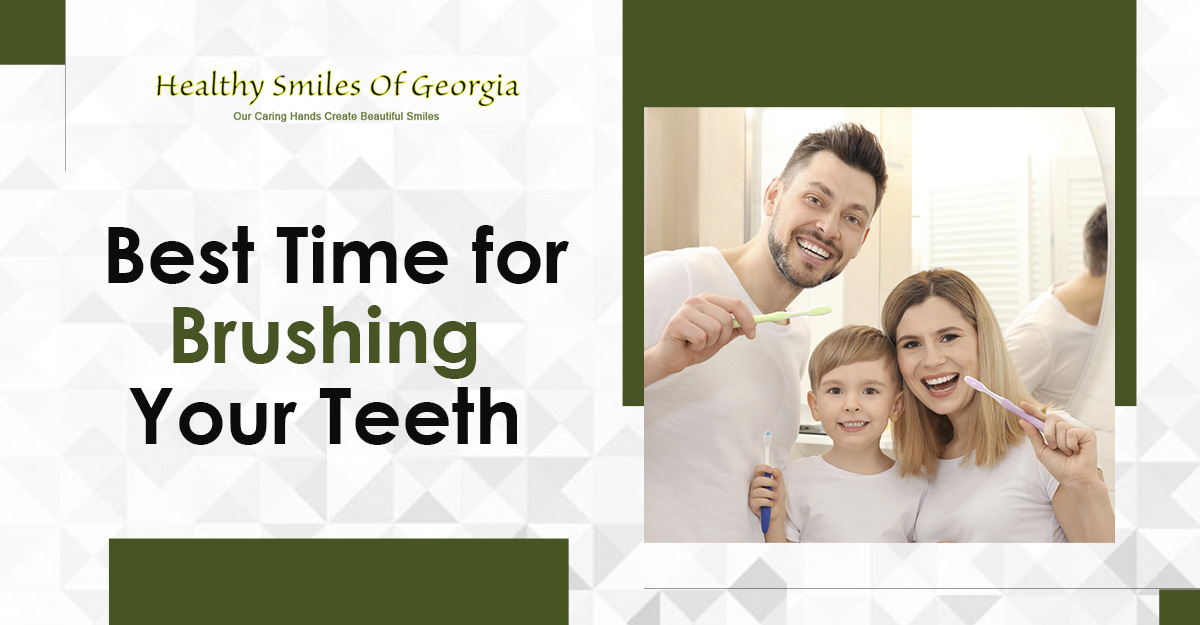In the world, there are two types of people when it comes to brushing their teeth: those who do it before breakfast and those who do it after breakfast. However, determining which group is right isn’t a straightforward answer, as with many health-related questions, the best approach varies.
According to dental experts, brushing your teeth before breakfast can be beneficial as it creates a protective layer on your teeth and stimulates saliva production. During sleep, salivary flow decreases, leading to dry mouth, which makes your teeth vulnerable to acidity. Brushing before breakfast helps counteract this and reduces the risk of morning breath as well.
If you prefer brushing your teeth after your first meal of the day, it’s advisable to wait at least 30 minutes after finishing your meal. This waiting period is essential because the acids present in your food and beverages, especially coffee, can potentially harm the enamel of your teeth.
During this 30-minute interval, your saliva plays a crucial role in neutralizing the acids and bringing them down to safe levels. To assist in this process, you can swish with water or use an alkaline mouth rinse like Therabreath, which helps in neutralizing the acids while your saliva begins its work. This simple practice can help protect your teeth and maintain their health.
How frequently should you brush your teeth?
It is recommended to brush your teeth at least twice a day, ideally once in the morning and once before going to bed.
Both of these times hold equal importance, with the bedtime brushing being particularly crucial. This is because it helps remove all the plaque that has accumulated throughout the day. An easy way to remember this is: brushing at night keeps your teeth, and brushing in the morning keeps your friends.
If you feel the need to brush your teeth during the day, like after lunch, it’s advisable to wait for about 30 minutes after the meal. This allows you to avoid brushing while acids from the food may still be affecting your teeth. However, remember that excessive brushing doesn’t necessarily translate to better oral health.
The key is to ensure you perform effective brushing in the morning and at night. This mechanical disruption of plaque is the most effective way to prevent cavities and improve gum health. There’s no need to obsessively brush throughout the day as long as you’re doing it well during the two primary brushing sessions.
Effective Techniques for Brushing Your Teeth
Using a soft or extra soft toothbrush is a common recommendation by dental professionals. For adults, it is advised to apply a pea-size amount of toothpaste and hold the toothbrush at a 45-degree angle towards the gums. While brushing, use short back and forth strokes to ensure every tooth is cleaned thoroughly. It’s essential to avoid aggressive brushing, as it can lead to gum recession and enamel wear.
If you prefer an electric toothbrush, remember to apply very gentle pressure and allow the brush to do the work for you. Glide the toothbrush at a 45-degree angle towards the gum on the outer and inner surfaces of your teeth, and then straight onto the top surfaces.
Remember to change your toothbrush every three to four months or after any period of illness. Keeping your toothbrush fresh ensures effective oral hygiene.
Additional Methods for Safeguarding Your Teeth
Maintaining good oral health is not only essential for your teeth and gums but also reflects your overall well-being.
Apart from regular brushing, flossing plays a crucial role in keeping your gums healthy. Flossing at least once a day can significantly reduce the risk of developing cavities between your teeth.
Using water flossers like WaterPik can be a beneficial addition, particularly for individuals with limited dexterity, as they effectively improve gum health. Additionally, tongue scraping is an underrated practice that can help reduce harmful bacteria in the mouth.
To counter morning breath, using mouthwash about five minutes before brushing can be helpful. However, it’s essential to be cautious with alcohol-based mouthwashes as they may cause dryness in the mouth.
If you struggle to maintain a consistent tooth-brushing routine, there are a few tips to consider. Find a toothpaste flavor that excites you, invest in an electric toothbrush (many come with built-in timers for optimal brushing duration), and consider brushing with a friend, family member, or roommate. Brushing together not only fosters connections but also serves as motivation to maintain this vital habit consistently.






